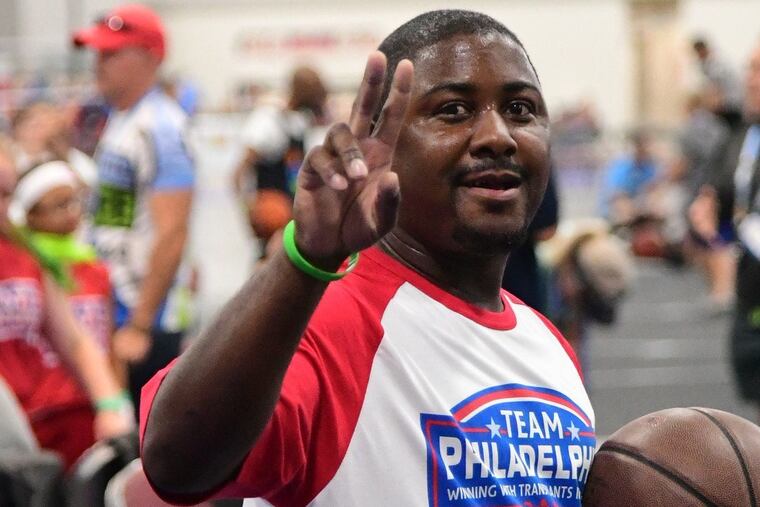A liver transplant saved my life. Now I represent Philly in the Transplant Games.
My mom encouraged me to start, and this is my first games without her. She died last year, and we donated her tissue. Now, I’m representing recipients and donor families.

Most kids heal quickly, but not me. I broke my leg when I was 2 years old, and it didn’t heal for months. I needed a tiny little walker just to toddle around.
That was just one blow in a short life filled with medical problems. I was born with a failing liver that affected every part of my body, including bone formation. The only solution was a liver transplant; I can only imagine how difficult it was for my mom and dad, sitting by the phone, waiting for the call to say it was my turn. They worried I would die before I turned 4.
We finally got the call, and I did get a transplant. I only know two things about my donor: The child was my age, and my donor’s parents — who experienced a loss that no one should ever have to endure — said yes to organ donation. On the worst day of their lives, they made the selfless decision that saved mine.
» READ MORE: ‘I didn’t want him to die’: How a South Jersey man keeps his son’s memory alive by promoting organ donor awareness
Thirty years later, I have been thinking of them, and my little walker, as I practice for the 2022 Transplant Games of America, which begin on Friday. Organ transplant recipients and living donors will compete in 20 Olympics-style events in San Diego. I’m part of Gift of Life Donor Program’s Team Philly, which will proudly represent our region at the games. I am gearing up to compete in basketball, track and field, and bowling. It’s the first year back since 2018, as the 2020 games were canceled due to COVID-19.
The Transplant Games are a major part of how I think about donation and the role it plays in my life. In 1996, my mom started taking me to the games with a group from St. Christopher’s Hospital for Children, seeing it as a chance for me to make friends with other young transplant recipients. There is nothing more magical than seeing everyone together on opening night, cheering, laughing, and crying, knowing we are here because of the selfless generosity of another human being.
My mom understood it was also important to spend time with another group: family members of donors. Indeed, many of them travel with the team to cheer us on. Even though we didn’t know my donor family, my mom understood how important it is for recipients and donor families to be together as we celebrate the legacy of our donors. Recipients get to say thank you, and donor families get to see what their loved ones’ generosity meant.
“Recipients get to say thank you, and donor families get to see what their loved ones’ generosity meant.”
For the first time, I know she was right.
This year, I am now a member of a donor family. My mom died last year; this will be my first ever games without her. When we were asked if we’d like her to be a donor, we knew what she would want. We knew she was thankful to have 30 more years with me. She would be proud to know that she was able to help others even after she was gone. We received a note from Gift of Life saying her tissue and corneas were used. There may be someone who has the gift of sight today because of her cornea donation. For all I know, that person could be a future teammate of mine.
Every day, I am reminded of how lucky I am to be here. I look at my little scar in the mirror, faded after 30 years. My new liver has never given me any problems. I have only been on one medication for it my entire life. When I saw my transplant doctor a few weeks back, he could not believe how healthy I looked.
There is a persistent myth that people who’ve received transplants have a diminished quality of life. It’s false. And it’s why I want people to know my story. My donor didn’t just save my life, they gave me a great life. I am healthy, happy, and thriving in this world.
Many people around the country are waiting for their second chance. More than 100,000 children and adults in the United States are waiting for the same call about a transplant that my parents waited for all those years ago, including 5,000 people in our region. You can help them by registering to become an organ and tissue donor. It’s simple and easy, and each donor could help save and enhance more than 100 lives. Just go to registerme.org to sign up.
Rafiah Cheeks is a sanitation worker for the Philadelphia Streets Department. He lives in Mount Airy.